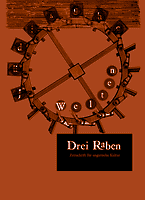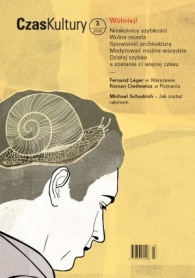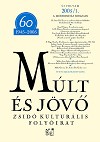
We kindly inform you that, as long as the subject affiliation of our 300.000+ articles is in progress, you might get unsufficient or no results on your third level or second level search. In this case, please broaden your search criteria.


Die katholischen Bischöfe in Deutschland und Österreich erklärten in ihrem gemeinsamen Hirtenbrief zum 50jährigen Gedenken an die Judenpogromnacht des 9. November 1938 mit Blick auf eine “unselige Tradition” der Kirche, alte Vorurteile hätten "die Abwehrkräfte gegen das neue Phänomen des modernen Antisemitismus geschwächt, der die Rasse zum höhsten Prinzip erhoben hat". Im selben Sinn bekannten die katholischen Bischöfe der Niederlande die Mitverantwortung der Kirche für die Juden-verfolgungen während des Zweiten Weltkriegs. In ihrem Dokument steht, daß allein die Lehre, dass das Judentum nach dem Tod Christi ausgestossen worden sei, unheilvolle Wirkung gezeitigt habe. Von diesem Schuldgeständnis der katholischen Kirche in den drei Staaten ausgehend, befasst sich die Abhandlung mit dem Phänomen des Antisemitismus in den Werken dreier prominenter Theologie-professoren in Deutschland zur Zeit der Hitlerdiktatur: K. Adam, M. Schmaus und A. Stonner. Bezeichnend ist, dass alle diese Theologen nach dem Zusammenbruch des Nationalsozialismus 1945 ihre Universität-stätigkeit in der BR Deutschland fortsetzen konnten und als Professoren emeritiert wurden. Weder katholische nach protestantische Theologen hatten nach dem Zweiten Weltkrieg die Mitverantwortung ihrer Kirchen für das Schicksal der Juden im Dritten Reich gestanden; die ehrliche Ausnahme stellte hier nur der katholische Kirchenhistoriker Joseph Lortz dar.
More...
Anti-Semites used a particular form of narrative that changed over time. Beginning with the 1880s the language of anti-Semitic propaganda adopted an increasingly aggressive tone. In the interwar period, on top of aggression, insinuations, lies or stereotypical simplifications already known from previous publications, anti-Semites more and more often turned to mockery, whose aim was to humiliate and depreciate Jews as well as their culture by means of sneering. The author of the article analyses a particular form of mockery which employed loanwords from the Yiddish language or was stylised as the Yiddish language itself. Such a phenomenon is illustrated with an example of feature articles published in “Myśl narodowa” weekly, a body of the nationalist political movement National Democracy targeted at intelligentsia and issued between 1921 and 1939 in Warsaw. The roots of this stylistic device go back to the vaudevilles staged in cafés in the late 19th century, which included satirical monologues of Jewish protagonists speaking a distinct Polish language filled with linguistic mistakes and Yiddishisms.
More...
The article analyses Jolanta Dylewska’s documentary film Po-lin (2008). The authors offer new conceptual categories facilitating the description of the manner in which the objectification of Jews takes place in Po-lin – and in the broader context of Polish narrative of Jews and the Holocaust – under the guise of their subjectification; exclusion under the guise of inclusion. The described symbolic practices include: 1. Organising a narrative of the Holocaust by means of exteriorisation; universalisation; locating outside the history; considering the Shoah as a natural disaster, and finally as part of the divine plan. 2. Constructing the image of “a Jew” by: homogenisation of the group, folklorisation, aesthetisation and separation. Examining the case out of the context allows for omitting the wider sphere of interaction, in which the exclusion as well as symbolic and physical abuse carried out by the majority group came to light. 3. Creating a figure of “the good Jew”, which shows gratefulness to the domineering group and full understanding of anti-Semitic discriminatory practices. The function of “the good Jew” is to legitimise the majority story and to discipline or repress anyone who undertakes actions to change the status quo. The above-describe devices produce the effects of eliminating real experiences of real people who suffered the anti-Semitic abuse, blocking afterthoughts while preserving the heartening image of Poland and Poles.
More...
The essay, by Mihály Vajda shows how and over what obstacles the Kertész oeuvre has managed to wrest meaning and value from the Holocaust.
More...
Juli Vajda deals with the rememberence of the Holocaust from a psychological point of view
More...
Ágnes Heller essay, About "Fatelles", after Twenty Years, in which the seminal work is analyzed, concludes that even today the essay author - herself the contemporary of Kertész with similar, "fateless" background - has not managed to reach the appropriate distance from the work neither as a reader nor as a contemporary.
More...

Bevezető előadás az 1988. október 27-én, a Dohány utcai zsinagógában tartott hangversenyen. Kroó György előtt Schőner Alfréd főrabbi beszélt.
More...